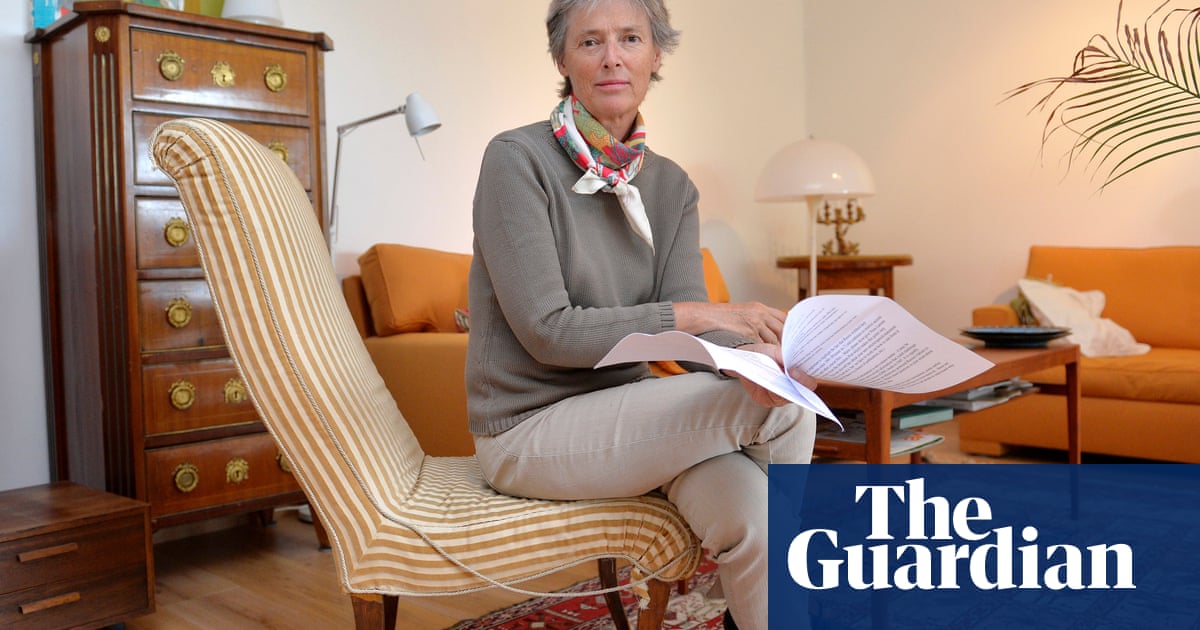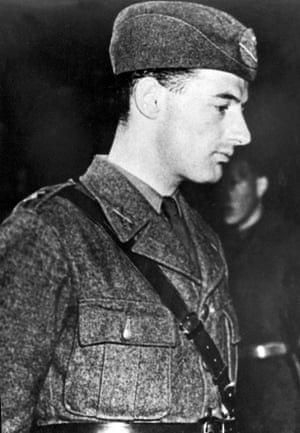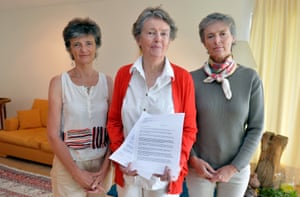Raoul Wallenberg is thought to have saved as many as 30,000 Jews but his descendants do not know how, when or why he died

Seventy-five years after the amateur Swedish diplomat Raoul Wallenberg embarked on his desperate mission to rescue Budapests Jews, his descendants still do not know how, when or why he died.
This week, they are travelling to Stockholm to demand the government finally does a bit more to help them find out.
I want specific answers to specific questions, said Marie von Dardel-Dupuy, the niece of the young architect and businessman whose bold if haphazard humanitarian operation is thought to have saved the lives of as many as 30,000 Hungarian Jews as the second world war neared its end.
Von Dardel-Dupuy, who lives in Switzerland, told the Guardian: He was a great man who wasnt afraid to do the impossible. He deserves for us to know what happened to him. His story is unfinished the mystery must be resolved. There are still so many closed doors, and we must have help in opening them.

No formal, official announcement has ever been made about the fate of Wallenberg, often called Swedens Schindler, who has become an honorary citizen of four countries and the subject of countless books and films since vanishing in early 1945 into the the Soviet prison system, where he is presumed to have died.
Together with historians, the diplomats closest family have for decades wrestled with Soviet, and subsequently Russian, authorities, who they are now certain have withheld crucial information and, at times, actively misled researchers.
But they have also faced a largely inert Swedish government that, they say, has since the end of the war displayed an understandable but acutely frustrating reluctance to do anything to antagonise its powerful eastern near neighbour.
Susanne Berger is an American historian who acted as consultant to the Swedish-Russian working group that investigated Wallenbergs fate from 1995 to 2005 and has since founded a research initiative that bears his name.
She said: We know for sure that the Russian side has important information it hasnt released. But Sweden does not push hard enough to obtain that material.
Berger will accompany Von Dardel-Dupuy to Stockholm on 25 September to meet foreign ministry officials and MPs. She said: We understand the pressures: we know it has to act with circumspection. But it could do far more.
The former Swedish prime minister, Gran Persson (in office from 1996 to 2006) apologised unreservedly for his countrys inertia over the case in 2001, noting that as long as there was no unequivocal evidence of what happened to Wallenberg and this is still the case it cannot be said he is dead.
But, Berger observed, in practice little has changed since then. She said Von Dardel-Dupuy would hand Swedish officials a letter formally asking them to submit an official request to Russian authorities for access to 10 key documents or files that researchers knew existed, and were crucial to the investigation of Wallenbergs fate.
Berger said the demand went to the heart of the current dispute with Swedish authorities. She said: Rather than act itself, Sweden places the onus of finding the truth on the shoulders of researchers and Wallenbergs family when it is quite clear that without official support this will always be an impossible task.
Raoul Wallenberg was 31 when, in July 1944, he volunteered to travel as a diplomat to Hungary as part of a US-funded effort to protect the 200,000 Jews still living in Budapest. More than 400,000 outside the capital had already been transported to Nazi death camps.
He recruited 350 volunteers, rented 32 safe houses covered by diplomatic immunity, organised vital supplies of food and clothing, and issued thousands of letters of protection, official-looking documents that had no legal authority but were widely accepted by Hungarian and German officials, often with the aid of a bribe.
Just six months after he arrived, however, Wallenberg a member of the wealthy Swedish family of industrialists and bankers himself became a victim. Invited to the Soviet military HQ in eastern Hungary, he was arrested and taken to Moscow.
His family have never received an official explanation for his detention, although suspicions he was also spying for the Americans, and his connections with some senior German politicians he negotiated his humanitarian mission with, among others, Adolf Eichmann have been suggested.

Worse, his family do not know for sure what happened to him afterwards. In 1957, Moscow produced a document dated 17 July 1947. It was signed by the governor of the Lubyanka prison infirmary, claiming Wallenberg had died that night of a heart attack and that his body had been cremated.
Since the fall of the Soviet Union in 1991, however, Russian officials have also said without evidence, and claiming variously that he was poisoned and shot that the diplomat was summarily executed in 1947. Unconfirmed reports that Wallenberg was still alive continued to surface until the late 1980s.
Over the decades, the uncertainty has taken its toll on Wallenbergs family. His mother, Maj, and stepfather, Fredrik von Dardel (his father died before he was born), devoted the rest of their lives to trying to discover the fate of their son, finally killing themselves two days apart in 1979.
Their son, Guy von Dardel, the diplomats late half-brother, a particle physicist who helped establish Cern, sat on numerous commissions and travelled more than 50 times to Moscow, examining what records he could and compiling a 50,000-page dossier but without ever uncovering any conclusive proof.
His daughters, Marie and Louise, now in their 60s, have also campaigned tirelessly, convinced the mystery could be solved within a year if Berger, her colleague Vadim Birstein and other Wallenberg experts had access to the relevant documents.
Among the classified records to which the historians want access are Soviet files on Willy Rodel, a German diplomat and Soviet informer who shared a cell with Wallenberg, and files that could help explain four days between Wallenbergs transfer from Lefortovo prison to Lubyanka when his whereabouts are unknown.
The researchers are also keen to see Red army as opposed to military counter-intelligence files relating to Wallenberg, as well as interviews with the diplomats colleagues and Soviet intelligence reports on the wider Wallenberg family and its often controversial business interests.
But their main interest, said Birstein, a historian who was a member of the first international commission on Wallenberg in 1990, is in the records of prisoner No 7, a still unidentified prisoner who they know was interrogated, together with Wallenbergs driver, for more than 16 hours on 23 July 1947.
If, as researchers firmly believe, prisoner No 7 was actually Wallenberg, that means the diplomat was still alive six days after his official date of death. Its absolutely unclear why they are still refusing to release this material, said Birstein. We know these records exist so what do they have to hide?
After a formal request by Von Dardel-Dupuy in 2018, Sweden last month belatedly released 40,000 pages of its own Wallenberg archives dating mainly from 1970 to 2018 meaning a total of 170,000 pages are now available in Stockholm.
Margot Wallstrm, the foreign minister who has since resigned, said at the time that it was important to keep Wallenbergs memory alive.
She added: His civic courage inspires us, and is much needed in todays world. The government will continue to support the work of trying to get clarity on his destiny.
Berger said that was not really good enough. She said: Theres a gulf between the words and the action. Seventy-five years after Raoul Wallenberg risked his life in Budapest, the question is no longer when the truth will be known, but why neither side seems to have the political will to reveal it.


Recent Comments